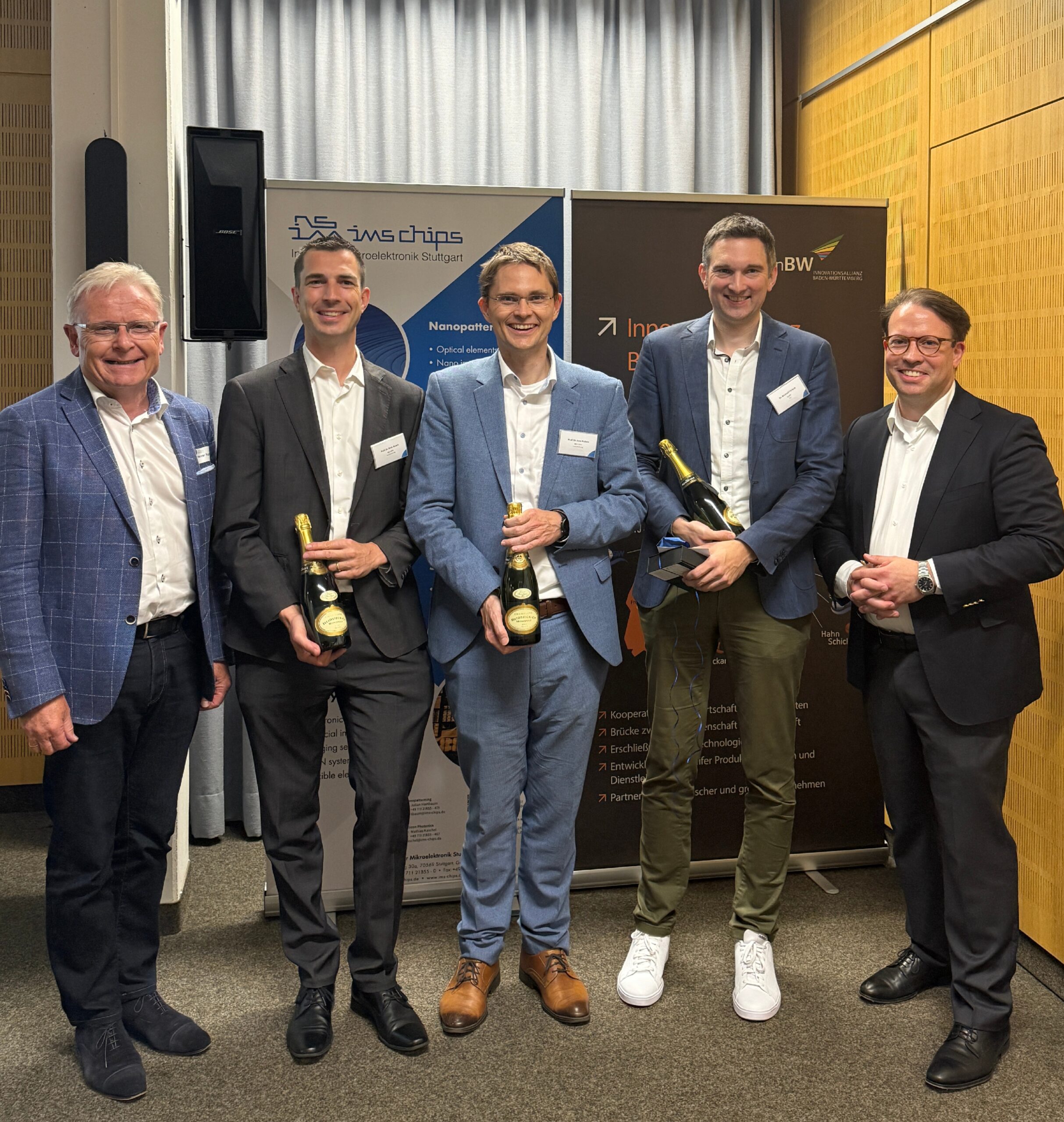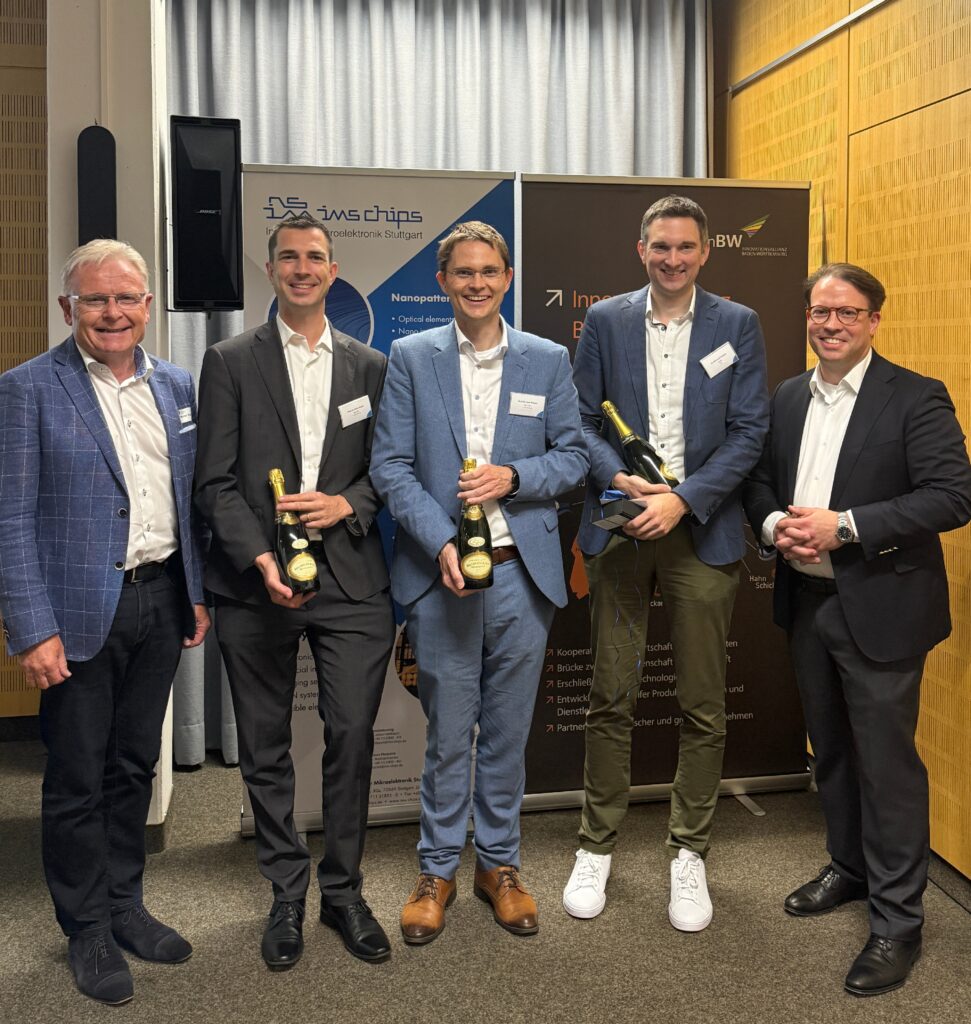C-Level-Talk with Q.ANT, INSEAD Business School Alumni and Tönissteiner Kreis at IMS CHIPS
Veröffentlicht am

C-Level-Talk with Q.ANT, INSEAD Business School Alumni and Tönissteiner Kreis at IMS CHIPS

A technological exchange forum: INSEAD Alumni for a visit at IMS CHIPS
IMS CHIPS welcomed international alumni of INSEAD Business School and members of the Tönissteiner Kreis in Stuttgart last week. The guests not only brought with them impressive international perspectives, but also great interest in one of the most pressing issues of our time: How can Europe become a technological leader?
One of the highlights of the visit was the keynote speech by Dr. Michael Förtsch, CEO of Q.ANT GmbH, entitled:
„Beyond Silicon – Photonics as the Key to Europe’s AI Leadership“.
He impressively emphasized that Europe should not focus on catching up with the traditional semiconductor market – but instead seize the opportunity to set new standards in AI-supported computing with photonic processors.
The guests were given a guided tour along our clean room windows and exclusive insights into current developments in microelectronics, quantum technology and photonics. Expert impulses came from Prof. Dr. Niels Quack and Prof. Dr. Jens Anders and rounded off the program – both emphasizing the role of European research in the transformation of industrial value chains.
The discussions also focused on the famous “Valley of Death” – the gap between research and industrial implementation. This is precisely where IMS CHIPS sees itself as a bridge builder: with the first dedicated pilot line for photonic chips in Europe, which enables concrete applications – far beyond just academic projections.
The key message: Europe’s future does not lie in optimizing existing technologies, but in creating new computing technologies – with light as the central medium for speed, energy efficiency and new functionalities.
We would like to thank all participants for the inspiring discussions, the great interest and the open exchange. Special thanks go to Dr. Förtsch for his groundbreaking impulses – and to all guests for their contribution to a future-oriented dialog.